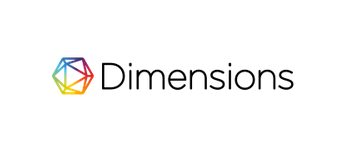The Influence of Soft Skills and Discipline on Employee Work Productivity at Bedrock Hotel Kuta Bali
DOI:
https://doi.org/10.63076/jomm.v2i2.42Keywords:
Soft skills, Work discipline, Employee productivity, Hospitality, Hotel management, BaliAbstract
The hospitality sector is central to Bali’s tourism industry, where employee productivity directly impacts service quality and competitiveness. This study examines the influence of soft skills and work discipline on employee productivity at Bedrock Hotel Kuta Bali. Using a quantitative causal-associative approach, data were collected from all 55 employees through a validated Likert-scale questionnaire. Soft skills were assessed via communication, teamwork, and initiative indicators, while work discipline included punctuality, adherence to rules, and task consistency. Multiple linear regression analysis, preceded by classical assumption tests, revealed that both soft skills (β = 0.518, p < 0.05) and work discipline (β = 0.577, p < 0.05) significantly and positively affect productivity, jointly explaining 86.6% of its variance. These results highlight that non-technical competencies and behavioral discipline are equally critical for enhancing operational performance in hospitality. Practically, the findings recommend implementing structured training to improve problem-solving, conflict resolution, and teamwork, alongside clear policies that strengthen punctuality and procedural compliance. Theoretically, the study extends human capital perspectives by confirming the complementary role of soft skills and discipline in driving productivity in service-oriented contexts. Future research should incorporate leadership style, organizational culture, and technology adoption to enrich the productivity framework in hospitality operations.
References
J. Liburd and D. Edwards, Understanding the Sustainable Development of Tourism. Oxford, U.K.: Goodfellow Publishers, 2018.
Kementerian Pariwisata dan Ekonomi Kreatif, “Tourism Statistics 2023,” Ministry of Tourism and Creative Economy, Jakarta, Indonesia, 2024. [Online]. Available: https://www.kemenparekraf.go.id
P. C. M. Mody and S. Day, “Tourism destination branding: Insights and practices from Bali, Indonesia,” J. Destination Marketing & Management, vol. 12, pp. 85–95, 2019, doi: 10.1016/j.jdmm.2019.02.004.
M. K. Kusumawati and M. D. Lee, “Service quality in the hospitality industry: A case study of hotels in Bali,” Int. J. Hospitality Management, vol. 92, p. 102724, 2021, doi: 10.1016/j.ijhm.2020.102724.
M. Assaf, C. Josiassen, and L. Agbola, “Attracting repeat visitation in competitive tourism markets,” Tourism Management, vol. 77, p. 104011, 2020, doi: 10.1016/j.tourman.2019.104011.
M. A. Khan and A. Alothman, “Determinants of employee productivity in hospitality: Evidence from emerging markets,” J. Human Resources in Hospitality & Tourism, vol. 21, no. 4, pp. 469–487, 2022, doi: 10.1080/15332845.2022.2058503.
A. Succi and M. Canovi, “Soft skills to enhance graduate employability: Comparing students and employers’ perceptions,” Studies in Higher Education, vol. 45, no. 9, pp. 1834–1847, 2020, doi: 10.1080/03075079.2019.1585420.
S. Robles, “Executive perceptions of the top 10 soft skills needed in today’s workplace,” Business Communication Quarterly, vol. 75, no. 4, pp. 453–465, 2012, doi: 10.1177/1080569912460400.
M. Y. Dessler, Human Resource Management, 16th ed. Harlow, U.K.: Pearson Education, 2023.
A. B. Bakker and E. Demerouti, “Job demands–resources theory: Taking stock and looking forward,” J. Occupational Health Psychology, vol. 22, no. 3, pp. 273–285, 2017, doi: 10.1037/ocp0000056.
A. K. Buhalis and S. Sinarta, “Real-time co-creation and nowness service: Lessons from tourism and hospitality,” J. Travel & Tourism Marketing, vol. 36, no. 6, pp. 563–582, 2019, doi: 10.1080/10548408.2019.1592059.
A. O. Osinubi, “Industry 4.0 and the hospitality sector: The challenges of workforce adaptation,” Tourism Management Perspectives, vol. 37, p. 100781, 2021, doi: 10.1016/j.tmp.2020.100781.
K. Sisson and M. Adams, “Developing hospitality employees’ soft skills through training and development,” J. Hospitality & Tourism Education, vol. 33, no. 2, pp. 124–135, 2021, doi: 10.1080/10963758.2020.1778520.
M. C. Karatepe and E. Olugbade, “The effects of work engagement and work discipline on hotel employees’ job performance,” Int. J. Contemporary Hospitality Management, vol. 31, no. 3, pp. 1409–1429, 2019, doi: 10.1108/IJCHM-06-2018-0482.
J. Creswell and J. D. Creswell, Research Design: Qualitative, Quantitative, and Mixed Methods Approaches, 5th ed. Thousand Oaks, CA, USA: Sage Publications, 2018.
U. Sekaran and R. Bougie, Research Methods for Business: A Skill-Building Approach, 8th ed. Hoboken, NJ, USA: Wiley, 2019.
J. F. Hair, W. C. Black, B. J. Babin, and R. E. Anderson, Multivariate Data Analysis, 8th ed. Harlow, U.K.: Pearson Education, 2019.
D. G. Altinay and Z. Paraskevas, Planning Research in Hospitality and Tourism, 2nd ed. Oxford, U.K.: Butterworth-Heinemann, 2016.
J. Pallant, SPSS Survival Manual: A Step by Step Guide to Data Analysis Using IBM SPSS, 7th ed. Maidenhead, U.K.: McGraw-Hill Education, 2020.
A. Field, Discovering Statistics Using IBM SPSS Statistics, 5th ed. Thousand Oaks, CA, USA: Sage Publications, 2018.
D. Kothari, Research Methodology: Methods and Techniques, 4th ed. New Delhi, India: New Age International Publishers, 2020.
J. W. Neuman, Social Research Methods: Qualitative and Quantitative Approaches, 8th ed. Harlow, U.K.: Pearson Education, 2014.
S. Hussain, G. Soni, and F. A. Shah, “Soft Skills and Interpersonal Skills for Tourism and Hospitality Industry,” in International Handbook of Skill, Education, Learning, and Research Development in Tourism and Hospitality, A. Sharma, Ed. Springer International Handbooks of Education, 2024, ch. 7, doi: 10.1007/978-981-97-4318-6_7.
D. Zhu, T. Doan, P. Kanjanakan, and P. B. Kim, “The impact of emotional intelligence on hospitality employees’ work outcomes: a systematic and meta-analytical review,” J. Hospitality Market. Manage., vol. 31, no. 3, pp. 326–347, 2022, doi: 10.1080/19368623.2021.1978914.
A. Sanz-García, “Psychometrics of Emotional Intelligence in Hospitality,” Hosp., vol. 5, no. 1, p. 16, 2024, doi: 10.3390/hospitality5010016.
Y. Ifleh, M. Lotfi, and M. Elkabbouri, “Rethinking value creation from the resource based view: the case of human capital in Moroccan hotels,” arXiv, 2018, doi: 10.48550/arXiv.1805.05465.
J. Völker, et al., “Emotional intelligence matters in hospitality education,” Front. Psychol., vol. 14, 2023, doi: 10.3389/fpsyg.2023.1106950.
P. J. S. P. Jayawardena, “Service Quality and Customer Satisfaction in Hospitality,” Tourism Leisure Stud., vol. 7, no. 1, pp. 15–27, 2023, doi: 10.18848/2470-9336/CGP/v07i01/15-27.
C.-H. Ko, “Exploring How Empowerment Becomes Critical Success Factor in Hotel Operation,” Open Access Library J., vol. 12, pp. 1–11, 2025, doi: 10.4236/oalib.1113105.
L. Aksoy, “Global trends in hospitality,” Front. Serv. Sci., vol. 5, no. 2, pp. 45–59, 2022, doi: 10.1007/s11628-022-00493-8.
B. Stangl, “Transferable skills in tourism and hospitality,” Curr. Issues Tour., pp. 1–14, 2024, doi: 10.1080/13683500.2024.2312345.
Downloads
Published
How to Cite
Issue
Section
License
Copyright (c) 2025 Febri Rahmad Agung, Youmil Abrian

This work is licensed under a Creative Commons Attribution 4.0 International License.














